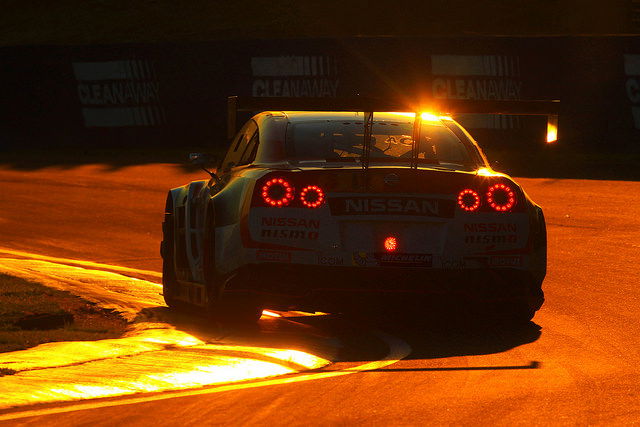

Having all but dismissed the possibility of introducing its GT-R into V8 Supercars in 2017, Nissan is weighing up an involvement in the Australian GT Championship with the iconic model.
While a Japanese factory-run GT-R has competed in the Bathurst 12 Hour for the last two years, Nissan’s GT3 offering is yet to appear in the AGTC.
The booming Australian GT scene is on track to expand further next year with an endurance championship added to the regular sprint series.
Nissan Australia CEO Richard Emery says the company has received strong interest from potential customers and that the AGTC is being factored into the current review of its motorsport operations.
Emery is set to meet with global Nissan and Nismo bosses in Japan next month before solidifying a domestic motorsport strategy for 2017 and beyond.
Although widely expected to continue in V8 Supercars with the Nissan-branded Kelly Racing outfit running Altimas, Emery continues to stress that “everything is under question” as part of the review.
Emery downplayed the prospect of putting factory money behind an Australian GT effort, but has previously met with category owner Tony Quinn and is keeping an eye on its direction.
“It is a discussion we are having (internally) about what role or how we will become involved in GT racing in Australia,” Emery told Speedcafe.com.
“It’s not at the point where the factory would want to be involved in directly running cars and I’m not sure the championship would want factories doing that either.
“But we have a number of people interested in running GT-Rs and seeking our support, which can include logistics for parts, technical know-how and things like that.
“We haven’t formalised anything yet, but it’s certainly something that’s part of this motorsport strategy that we’re working on.”
Individuals can import GT-R GT3s into Australia and compete without support from the factory, but appear to have been reluctant to do so amid a variety of other machinery for which local parts and knowledge exist.
A Nissan-supported entry in Australian GT racing could potentially be used to improve the country’s links to its global GT Academy, for which the international final is being run this morning.
Aspiring Australian drivers have been invited into the gamer-to-racer contest since last year, but there remains no local racing program for those who excel.
After an intensive development schedule, the regional GT Academy winners are catapulted into Nissan’s European GT3 outfit for the following season.
Two graduates, Wolfgang Reip and Florian Strauss, won the Bathurst 12 Hour with Nissan this year.
“We have to consider in our strategy how we make the link from GT Academy into everything else we do,” Emery said.
“To close the loop in terms of the global programs, they (Europe) have got GT Academy introducing guys into GT3 racing. We haven’t got that pathway working yet.
“It’s very hard to take a GT Academy winner, put him through the three-month intensive program in Europe and then stick him in the Dunlop Series.
“Formula 4 is also not the right platform for our GT Academy guys because they would be up against 17-year-olds who have been racing go-karts for six or seven years.
“Putting them in a GT car is much easier… those cars and the endurance environment is a great way for drivers to learn the ropes.
“(But) we don’t currently have that platform in Australia for our guys.”
Nissan is again expected to field Academy graduates at next year’s Bathurst 12 Hour, for which planning is also currently taking place alongside the 2017-focussed review.




















Discussion about this post